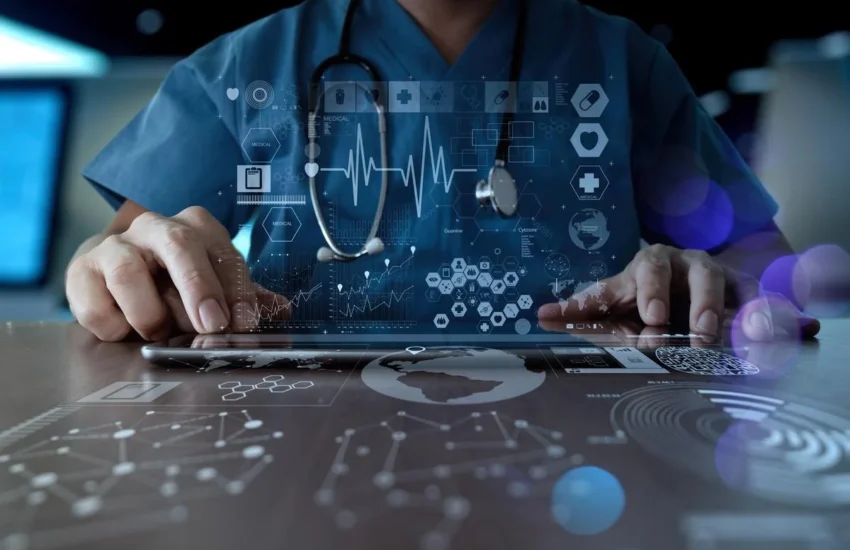Health technology is revolutionizing patient care and treatment, enhancing outcomes, improving efficiency, and making healthcare more personalized. As technology continues to evolve, its integration into healthcare systems is improving the way we diagnose, treat, and monitor patients. Here’s how health technology is transforming patient care and treatment:
1. Improved Diagnosis and Early Detection
Advancements in health technology have enabled more accurate and timely diagnoses.
- Artificial Intelligence (AI) and Machine Learning (ML): AI-powered algorithms analyze medical data to detect patterns that may be missed by human doctors. For example, AI is used in radiology to identify early signs of cancer in X-rays and CT scans.
- Wearable Devices: Wearables like smartwatches and fitness trackers can monitor heart rate, sleep patterns, and blood oxygen levels, alerting patients and doctors to potential health issues early on.
- Genetic Testing: Advances in genetic testing allow for personalized diagnostics, identifying genetic risks for conditions such as cancer or heart disease, enabling early intervention and targeted therapies.
2. Telemedicine and Remote Patient Monitoring
Telemedicine has been one of the most significant breakthroughs in recent years, particularly accelerated by the COVID-19 pandemic. It allows patients to consult healthcare providers remotely via video calls, phone calls, or chat.
- Convenience: Patients no longer need to travel to a clinic or hospital for routine check-ups or follow-up visits.
- Access to Care: Rural and underserved communities can access healthcare services that they might not have been able to otherwise.
- Remote Patient Monitoring (RPM): Devices that monitor vital signs, glucose levels, or even mental health remotely send real-time data to healthcare providers, allowing for continuous care and early intervention.
3. Personalized Treatment Plans
Health technology, especially through the use of big data and AI, is making treatments more tailored to individual needs.
- Precision Medicine: By analyzing a patient’s genetic makeup, lifestyle, and environment, doctors can provide treatments that are more effective and have fewer side effects. For example, certain cancer treatments are now tailored to the genetic mutations present in a patient’s tumor.
- AI in Drug Development: AI is streamlining the process of drug discovery and development, enabling the creation of more effective and personalized medications.
4. Enhanced Patient Engagement
Health technology has significantly improved patient engagement, empowering individuals to take control of their health.
- Health Apps: Mobile apps provide patients with personalized health information, medication reminders, fitness tracking, and even mental health resources.
- Patient Portals: Electronic Health Records (EHR) allow patients to access their medical history, lab results, and prescriptions, which encourages patients to be more involved in their care.
- Patient Education: Technology provides educational resources to patients, helping them understand their diagnoses and treatment options better.
5. Minimally Invasive Procedures and Robotics
The use of robotics in healthcare has transformed surgeries and treatment procedures, making them more efficient and less invasive.
- Robotic Surgery: Robots allow for more precise and minimally invasive surgeries, leading to smaller incisions, faster recovery times, and reduced risk of infection. For example, the da Vinci Surgical System is used for various procedures, including prostate surgery and heart surgery.
- Minimally Invasive Procedures: Technologies like laparoscopes allow surgeons to perform surgeries with smaller incisions, reducing recovery time and improving patient outcomes.
6. Improved Medication Management
Health technology has improved medication management by providing accurate and timely tracking of prescriptions and dosages.
- Smart Pills: These pills contain sensors that track when a patient has taken their medication and send data to healthcare providers, ensuring adherence to treatment regimens.
- Automated Medication Dispensing Systems: These systems help prevent human error in dispensing medications, ensuring patients receive the correct medication in the right dose at the right time.
- Medication Management Apps: Apps remind patients when to take their medications, track prescriptions, and even send alerts if a dose is missed.
7. Data-Driven Decision Making
The integration of big data and analytics is helping healthcare providers make more informed decisions.
- Predictive Analytics: Healthcare providers are using data to predict disease outbreaks, patient outcomes, and even readmission rates. For example, predictive models can identify which patients are at risk for sepsis or heart failure, enabling early intervention.
- Population Health Management: By analyzing large sets of health data, providers can better manage the health of entire populations, identify trends, and prevent diseases before they become widespread.
8. Faster and More Accurate Treatments
Technological advancements are accelerating the speed of diagnosis and treatment, reducing wait times, and improving accuracy.
- Point-of-Care Testing: Devices that allow for immediate results (e.g., blood glucose meters, rapid COVID tests) reduce the time it takes to diagnose and begin treatment.
- 3D Printing: 3D printing is now used to create custom prosthetics, implants, and even tissue. In some cases, doctors can print models of organs to better understand a patient’s condition before performing surgery.
9. Improved Healthcare Collaboration
Health technology is improving communication and collaboration between healthcare professionals, which leads to better patient care.
- Cloud-Based Systems: Healthcare professionals can access patient records and collaborate with specialists anywhere in the world, ensuring a more cohesive treatment plan.
- Integrated Systems: EHRs and Health Information Exchanges (HIEs) enable different healthcare providers to share patient information seamlessly, reducing errors and improving care coordination.
10. Reduced Healthcare Costs
While some health technologies come with an upfront cost, they can ultimately reduce the overall cost of healthcare by improving efficiency and outcomes.
- Remote Monitoring: By keeping patients at home and remotely monitoring their conditions, healthcare providers can reduce hospital readmissions and emergency room visits.
- Preventative Care: Technology allows for better management of chronic diseases and early detection of conditions, which prevents costly emergency treatments and hospitalizations.
Conclusion
Health technology is dramatically changing the way patients receive care, improving the quality of treatment, and enhancing overall health outcomes. From AI-powered diagnostic tools to remote monitoring and personalized treatment, the healthcare landscape is becoming more efficient, accessible, and tailored to individual needs. As technology continues to evolve, the future of patient care looks brighter than ever before.

